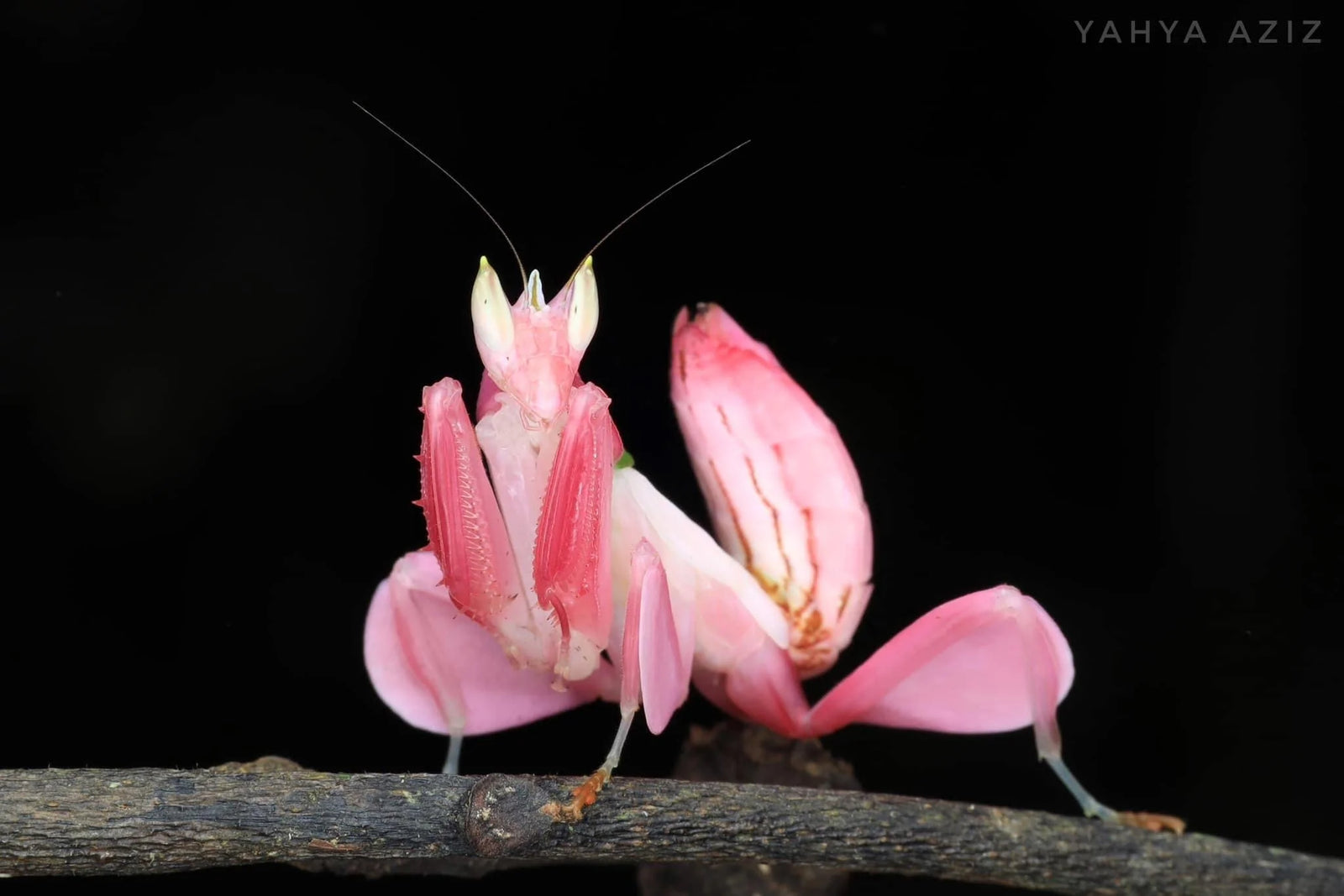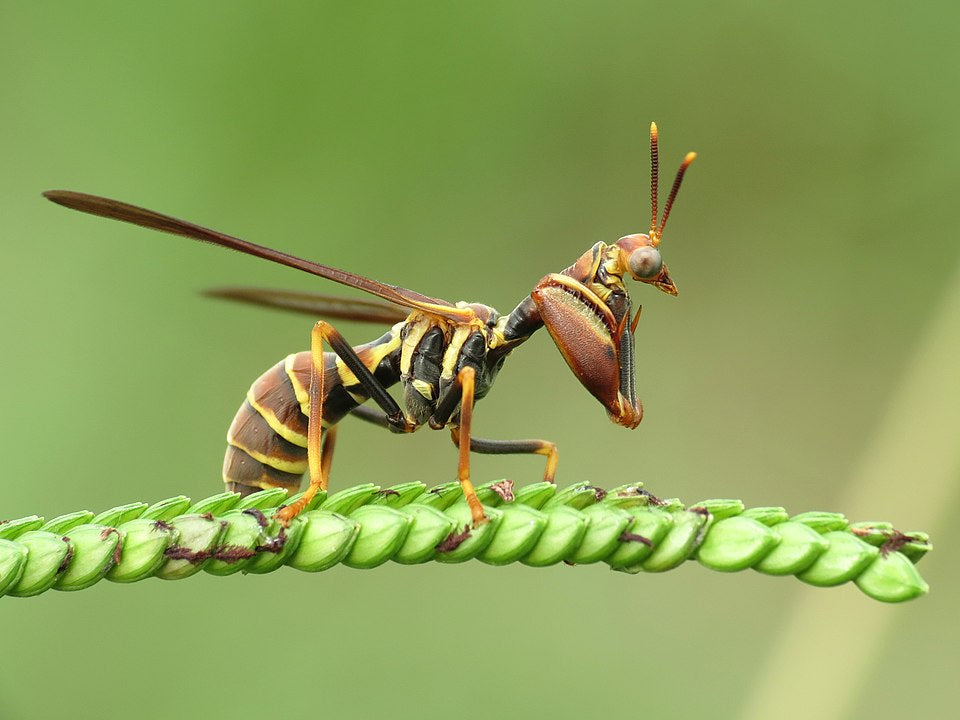Menú
-
- Hogar
- Contacto
- Buscar
-
Comercio
- Insectos vivos que se alimentan
-
Suministros
- Hábitats
- Comederos
- Comederos y suministros para la cría de microfauna
- Kits bioactivos
- Suministros bioactivos
- Contenedores
- Tazas de cultivo de insectos
- Tazas y tapas para cultivo de insectos
- Proyectos de aula
- Plantas de aire vivas bioactivas
- Sustratos
- Iluminación y Calefacción
- Jaulas, hábitats, cajas de insectos, viveros, insectarios
- Ladrar
- Suministros de envío, paquetes térmicos, paquetes fríos, contenedores.
- Bioactivo
- Plantas
- Galería Mantis
- Evaluaciones de Usmantis
- Mantis religiosa
- Mantis
- Ooteca de huevos de mantis religiosa para el control de plagas
- Suministros bioactivos
- Beneficial Insects
- Vídeos de ayuda
- Las 5 mejores mantis religiosas como mascotas,
- Blog
-
Comprar por familia
- Mantis religiosa
- Hojas de cuidado
- Orden de pista
- Live Feeder Insects
- Wholesale prices for bulk orders
- FAQ
- Galleries of Mantis Videos
-
- Hogar
- Buscar
- Sobre nosotros
- Envío
- Refund Policy
- Seguimiento de pedidos
- Contáctenos
- Blog
- Beneficial Insects
- Mapa del sitio
- Reseñas
-
Recursos de producción cinematográfica.
- Wholesale
- FAQ
- Entrar
-
Español

Pest Control for indoor and greenhouse grow rooms. Recent study News Update
julio 11, 2018 4 lectura mínima
PEST CONTROL FOR MARIJUANA GROW ROOMS. THIS SPECIES OF PRAYING MANTIS IS THE MOST EFFECTIVE SPECIES. STUDY
These days finding natural and safe methods to control insects for growing herbs including cannabis and vegetables indoors and in tents and greenhouses is challenging. Praying mantids are insectivores.
One of the best solutions for pest control is by using insectivores and the praying mantis is an aggressive and hearty choices. They will devoir pests of all sizes, stages and species.
When used properly praying mantids will effectively reduce or eliminate these pests without harm to the plants and the environment. This is for both indoor and outdoor use.- Here is a list of pests praying mantis will feast on.
- Aphids
- Barnacles / Scale Insects
- Broad Mites
- Caterpillars & Inchworms
- Crickets
- Fungus Gnats
- Grasshoppers
- Leafhoppers
- Leaf Miners
- Mealybugs
- Planthoppers
- Russet Mites
- Slugs / Snails
- Spider Mites
- Stink Bugs
- Thrips
- Whiteflies / White fly
We recommend using native mantis species found here in the USA. They have existed here for hundreds of years and The ooth (egg Case) hatches up to 200 nymphs. The mantis are also prey an abundant food source for other animals.
As with many of nature's predators, hunters often become the hunted. The mantid's natural enemies include birds, bats, spiders, snakes, and lizards. While lizards, snakes and scorpions will often eat small mantids, they often steer clear of the swift spiky forelegs and ruthless fighting tactics of the praying mantis. Frogs are another natural enemy who can kill or be killed, according to relative size.
There is much talk about some species being invasive, eating small animals like small fish, garden snakes and tiny birds. Though there are incidents of these being reported, the facts are that they are mostly beneficial to wildlife.

When properly applied, hatching mantis ooths can coincide and grow with your crop. Controlling even the smallest pests such as white flies, gnats and aphids as well as devouring large pests such as grasshoppers, crickets and caterpillars.
Mantids are insectivores and will aggressively hunt prey. They are cannibalistic though normally when mating as breeding adults. We keep hundreds of growing mantis nymphs together with minimal loss due to cannibalism. They most definitely choose to eat more defenseless insects as a regular diet.
See here our recommended mantis species most useful for protecting your crops here in the U.S.A.
- Tenodera sinesis- Here you can read and purchase ooths wholesale in bulk quantities
-
Tenodera augustipennis- Narrow wing mantis
- Mantis religiosa- European mantis
- Stagmomantis carolina
I have studied mantids and horticulture for many years, working with entomologists, colleagues, and students specializing in this field. I can guide you through the process of effectively protecting your plants using mantids. Depending on your needs can be available for consultation on site to evaluate the most effective results.
Craig Baker
I can be contacted here via email
There is one solution I've learned of through research that is the best solution for pest control the perfect defense a natural predator called P. paradoxa. Unfortunately most species will hunt and kill cannibalize other mantids including their own nymphs. These are not a viable option as they are a tropical species.

P paradoxa are one of the few communal mantis species which not cannibalize their own. Once you have an established community of these mantids you will benefit from their voracious appetite for: Ants Aphids Caterpillars Cutworms Crickets and grasshoppers Deer Fungus gnats Leaf miners Mealy bugs Spider mites Thrips Whiteflies Marijuana or greenhouse gardener pests or bugs are things every grower will encounter and has to control and identify.
P. paradoxa are a relatively docile species known for "Stealth" method of hunting. Sometime called "Ghosts" as they are masters of camouflage and easily mistaken by other insects as part of the plant. Normally they will hang from a branch perfectly still foraging on pest insects which may be traveling on the stems of the plants or flying near the praying mantis. They are masters of deception and calculating every move they make to have the most advantageous position to attack. They are unusually clever as when they do move towards a new location or while hunting they will sway as if they are just a leaf moving in the breeze.
They are hearty and breed easily though they are not to be released into the environment as they are not an indigenous species. We do not condone nor promote any illegal use of these products and offer this information as cited in a study by recent entomologist scientific research. P paradoxa are non native to the USA so may not be legal to use in your territory and you may want to check local laws for compliance.
Scientists might be able to draw from new sources of cannabis pest control for medical marijuana. We are hoping this will one day be approved USDA for use here in the USA. Great for control of plant lice, aphids, white flies, beetles, grasshoppers. spider mites, black flies or the occasional caterpillar. They are really wondrous creatures and give hours of enjoyment watching their antics as they devour the mean pests that infest your pot plants or garden as a whole.
Dejar un comentario
Los comentarios se aprobarán antes de mostrarse.
Ver artículo completo

orchid mantis evolutionary research
junio 06, 2025 2 lectura mínima
The orchid mantis (Hymenopus coronatus) transitions from black-and-red to pink-white coloration during development, a shift driven by the Redboy pigment transporter. This transition serves different ecological functions: red coloration helps hatchlings mimic stink bugs for predator avoidance, while the pink-white coloration of older nymphs provides floral camouflage for both predator avoidance and prey attraction. The Redboy transporter, upregulated by ecdysone, facilitates this shift by exporting red pigments in early stages and importing white pigments in later stages.
Evolutionary Basis:
Redboy's Role:
The Redboy transporter, a novel ABCG transporter, arose by gene family expansion and positive selection, specifically to handle the transition from red to white coloration, according to research on Nature.
Hormonal Regulation:
The hormone ecdysone regulates Redboy, ensuring the pigment transition happens at the appropriate developmental stage, according to research on ResearchGate.
Genetic Adaptation:
The evolutionary changes in Redboy have allowed orchid mantises to adapt their body color to different life stages and ecological niches.
Ecological Functions:
Aposematic Mimicry (Hatchlings):
The initial black-and-red coloration serves as a warning signal, mimicking the appearance of stink bugs, which are known to be distasteful or toxic to predators.
Camouflage (Older Nymphs):
The pink-white coloration provides floral camouflage, helping the mantis blend in with flowers and avoid detection by predators.
Prey Attraction:
The flower-like appearance also attracts unsuspecting prey, such as small insects, to their location, enhancing the mantis's hunting success.
In summary, the orchid mantis's body color transition is a fascinating example of ontogenetic camouflage and adaptive evolution, where the color changes throughout the mantis's life serve distinct ecological roles in where the color changes throughout the mantis's life serve distinct ecological roles in predator avoidance and prey attraction.
Ver artículo completo

Mantis fly Mantispidae, very special insect
octubre 15, 2024 3 lectura mínima
Mantispidae, they don’t sting! 

Artículos recientes
-
orchid mantis evolutionary research
junio 06, 2025
-
New Yorker article 1955 Mantis Man
marzo 09, 2025
-
Mantis fly Mantispidae, very special insect
octubre 15, 2024
-
Do insects have feelings? Love or Hate? What’s your opinion
septiembre 09, 2024
-
How Praying Mantises Hear: One ear
julio 19, 2024
-
Identifying Domestic species
julio 19, 2024
-
Invasive claims and irresponsible advice
abril 13, 2024
-
Is it time for insect researchers to consider their subjects’ welfare?
abril 08, 2024
-
My Awesome Summer by P. Mantis Children’s book
abril 07, 2024
-
Toxodera
abril 06, 2024
Categorías
- animal husbandry
- best feeders
- best mantis for pest control
- breeding praying mantis
- buy praying mantis
- Cannabis
- crickets
- discussion
- dormitory pet
- Drosophila
- education
- egg
- entomology
- fertility
- flightless fruit flies
- Flower mantis
- Friendly Bugs For Cannabis
- fruit fly culture
- geometric morphometrics
- Ghost mantis
- happy experience with pets
- Hydei
- Hymenopodidae
- Hymenopus coronatus
- invasive
- keeping insects alive
- Lucky mantis
- Major League baseball Perez Kisses Lucky Mantis!
- make money
- mantis for dummies
- mantis ooth
- Mantodea
- melanogaster
- mimicry
- mismolt
- new species
- ooth
- ooth care
- ootheca
- P paradoxa
- pest
- Pest control
- pet nutrition
- praying mantis
- praying mantis care
- praying mantis for sale
- reptile feeders
- School project
- scientific research
- Sexing praying mantis
- Shipping
- signalling
- stem
- stenophylla
- Store news
- stress from shipping
- usmantis
- we buy mantis
Menu Title
Esta secção não inclui de momento qualquer conteúdo. Adicione conteúdo a esta secção através da barra lateral.
Subscribe
Sign up to get the latest on sales, new releases and more …
Invalid Password
Enter